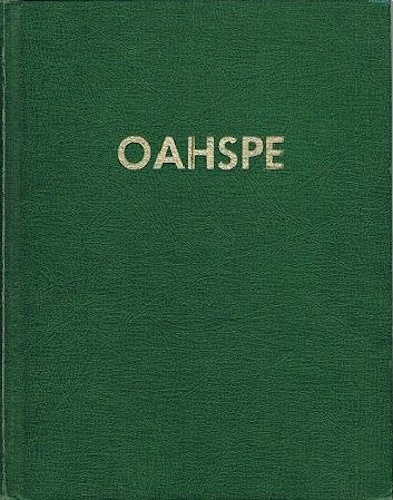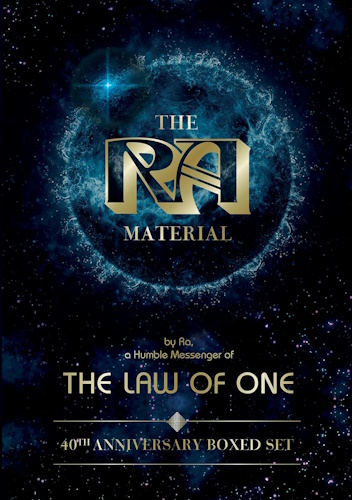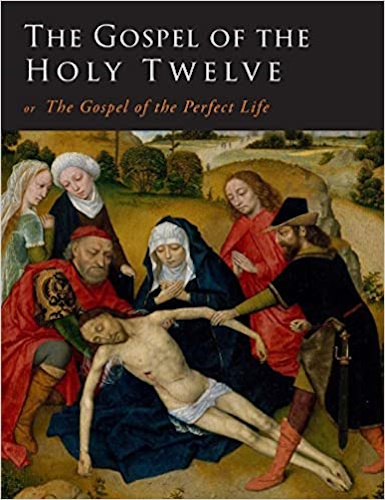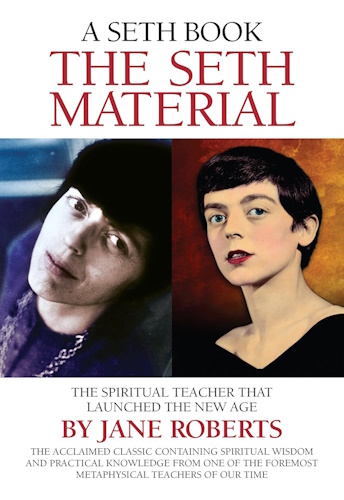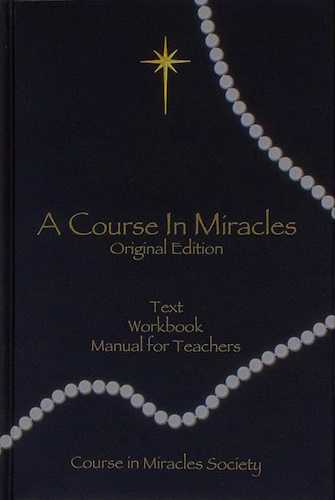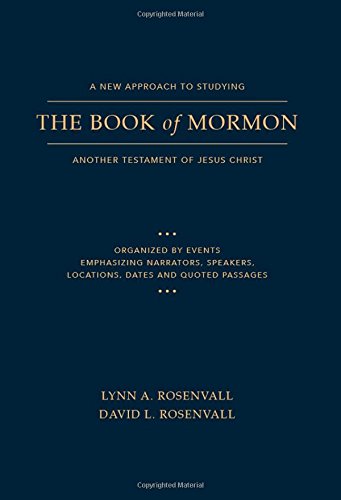
![]()
![]()
Book of Wars Against Jehovih
Chapter XLII
1. GOD in Craoshivi prayed Jehovih what he should do to release De'yus and Anubi; Jehovih answered, saying: My Son, thou shalt first labor for them that desire; whoso courteth darkness deserveth not thy hand. I have proclaimed from since the olden time, warning to them that put ME away; but in their self-conceit they denied My person and power.
2. Wert thou, this day, to deliver from hell De'yus and Anubi, and their thousands of millions of self-torturing slaves, they would but use their deliverance to mock My creation, saying: It lasted not; it was but a breath of wind. For which reason thou shalt not yet meddle with the hells of Hored.
3. In four hundred years I will bring the earth into another dawn of light.
p. 429
Till then, let De'yus and Anubi and their hosts take their course.
4. God inquired concerning Osiris and Te-in and Sudga, and Jehovih answered him, saying: Sufficient unto them is the light they have received. Suffer them also to take their course, for they also shall become involved in hells of their own building.
5. But be thou attentive to My Chosen, the Faithists, in all parts of heaven and earth; not suffering one of them to fall into the hells of my enemies.
6. God acquainted Ahura with Jehovih's words; then Ahura prayed to Jehovih, saying: O Father, grant thou to me that I may go to Osiris, and to Te-in, and to Sudga, to plead Thy cause. Behold, the Lord God is locked up in hell; even high-raised Gods would not find it safe to go to him.
7. Jehovih said: Why, O Ahura, desirest thou to go to Osiris and to Te-in and to Sudga? Knowest thou not, how difficult it is to alter the mind of a mortal man; and yet these self-Gods are ten-fold more stubborn!
8. Ahura said: I know, I cannot change them; to break this matter of conceit, and all learned men are liable to fall therein, none but Thee, O Jehovih, have power. But these self-Gods were long ago my most loved friends; behold, I will go to them as a father would to a son, and plead with them. Jehovih gave permission to Aura to visit them, the three great self-Gods.
9. So Ahura fitted out an otevan, and with ten thousand attendants, and one thousand heralds, and with five thousand musicians, besides the officers of the fire-ship, set sail for Che-su-gow, Te-in's heavenly place, over Jaffeth. And when he arrived near the place he halted and sent his heralds ahead to inquire if he could have audience with Te-in.
10. Te-in received the heralds cordially, and being informed of their object, sent back this word: Te-in, the most high ruler of heaven and earth sendeth greeting to Ahura, commanding his presence, but forbidding Ahura and his hosts from speaking to any soul in Che-su-gow save himself (Te-in).
11. Ahura received this insulting message with composure, and then proceeded and entered the capital city, the heavenly place of Te-in, where he was met by one million slaves, arrayed in the most gorgeous manner. These conducted him and his attendants to the arena, where Ahura was received by the marshals, who brought him to the throne, leaving the attendants in the arena. Here Te-in saluted on the SIGN OF TAURUS, and Ahura answered in the Sign FRIENDSHIP.
12. Te-in signaled privacy, and so all the others fell back, leaving Ahura and Te-in alone. Te-in said: Come thou and sit beside me on the throne. Ahura said: Because thou hast not forgotten me I am rejoiced. And he went up and sat on the throne. Te-in said: Because thou art my friend I love thee; because thou art beside me I am rejoiced. It is more than a thousand years since mine eyes have beholden thee. Tell me, Ahura, how is it with thyself and thy kingdom?
13. Ahura said: As for myself I am happy; for the greater part, my kingdom is happy also. My trials have been severe and long enduring. But of my four thousand millions, more than half of them are delivered beyond atmospherea, high raised; and of the others they grade from fifty to ninety.
14. Te-in said: And for thy more than two thousand years' toil, what hast thou gained by striving to raise up these drujas? Ahura said: This only, O Te-in, peace and rejoicing in my soul.
15. Te-in said: Hereupon hang two philosophies: One seeketh peace and rejoicing by laboring with the lowest of the low; the other, by leading the highest of the high. As for myself the latter suiteth me better than the former. I tell thee, Ahura, all things come of the will; if we will ourselves to shut out horrid sights and complainings, such as the poor druk and the druj indulge in, we have joy in a higher heaven. To me it is thus; sympathy is our most damnable enemy, for it bindeth us to the wretched and miserable. To put away sympathy is to begin to be a great master over others, to make them subservient to our wills.
16. Ahura said: Is it not a good thing to help the wretched? Te-in answered: To help them is like drinking nectar; to make one's senses buoyant for the time being. That is all. They relapse and are less resolute than before, but depend on being helped again. For which reason he who helpeth the wretched doth wrong them woefully. To make them know their places, this is the highest. For hath not even the Gods got to submit to their places. To learn to be happy with one's place and condition is great wisdom.
17. Herein have thousands of Gods fallen; they helped up the poor and wretched; as one may, in sympathy to serpents, take them into his house and
p. 430
pity them. They immediately turn and bite their helpers. But speak thou, O Ahura; for I have respect to thy words.
18. Ahura said: If a man plant an acorn in a flower-pot, and it take root and grow, one of two things must follow: the growth must be provided against or the pot will burst. Even thus draweth, from the sources around about, the lowest druj in heaven. None of the Gods can bind him forever. Alas, he will grow. All our bondage over them cannot prevent the soul, soon or late, taking root and growing. How, then, can we be Gods over them forever?
19. Te-in said: Thou art a God over them; I am a God over them. Where is the difference? Ahura said: I am not in mine own name; though I am God over them, yet am I not God over them. For I teach them they shall not worship me, but Jehovih. I train them that I may raise them away from me. Neither do my people serve me, but serve the Great Spirit. Thou teachest thy drujas that thou art the all highest, and that they shall be contented to serve thee everlastingly. Thou dost limit them to the compass of thy kingdom. I do not limit my subjects, but teach them that their progression is forever onward, upward.
20. Te-in said: How do we not know but the time will come unto them, and they shall say: Alas, I was taught in error. They told me there was a Great Spirit, a Person comprising all things, but I have found Him not. Will they not then revolt also? Was not this the cause of De'yus' fall? He had searched the heavens to the extreme, but found not Jehovih. Then he returned, and possessed himself of heaven and earth. Although he failed, and is cast into hell, it is plain that his sympathy for drujas caused his fall. From his errors, I hope to guard myself; for I shall show no sympathy for the poor or wretched; neither will I permit education on earth or in heaven, save to my Lords or marshals. When a mortal city pleaseth me not, I will send spirits of darkness to flood it unto destruction. Yea, they shall incite mortals to fire the place, and do riot and death. Thus will I keep the drujas of heaven forever busy playing games with mortals, and in bringing provender and diadems to forever glorify my heavenly kingdom.
21. Ahura said: Where in all the world hath a self-God stood and not fallen? Te-in said: Thou mayst ask of mortals: Where is a kingdom or a nation that stood, and hath not fallen? Yet thou perceivest nations continue to try to found themselves everlastingly. But they are leveled in time. Things spring up and grow, and then fall into dissolution. Will it not be so with ourselves in the far future? Will we not become one with the ever-changing elements, and as nothing, and wasted away?
22. Ahura said: One might say of man and spirits: There were some seeds planted; and many of them rotted and returned to earth; but others took root and grew and became large trees. But yet, is it not true also of the trees that they have a time? For they die, and fall down, and rot, and also return to earth.
23. Ahura continued: Admit this to be true, O Te-in, and that the time may come when thou and I shall pass out of being, doth it not follow that for the time we live we should contribute all we can to make others happy?
24. Te-in said: If by so doing it will render ourselves happy, with no danger to our kingdoms, then yea, verily. For which reason are we not forced back after all to the position that we shall labor for our own happiness, without regard to others? One man delighteth in art, another in philosophy, another in helping the poor and wretched; and another in eating and drinking, and another in ruling over others; shall not they all have enjoyment in the way of their desires? Shalt thou say to him that delighteth in eating and drinking: Stop thou; come and delight thyself helping the wretched!
25. Ahura said: This I have seen; the intelligent and clean have more delight than do the stupid and filthy; the rich more enjoyment than the poor. As for ourselves, we delight more in seeing the delighted than in seeing the wretched. More do we delight to see a child smile than to hear it cry; but there be such that delight more to make a child cry than to see it smile; but such persons are evil and take delight in evil. Shall we, then, indulge them in their means of delight? Or is there not a limit, as when we say: All men have a right to that which delighteth themselves, provided it mar not the delight of others?
26. Te-in said: Thou hast reasoned well. We shall delight ourselves only in such ways as do not mar the delight of others. Whereupon Ahura said: Then am I not delighted with the manner of thy kingdom; and thou shouldst not practice what giveth me pain. Because thou hast resolved to educate
p. 431
not mortals nor angels, thou hast raised a hideous wall in the face of Gods.
27. Te-in said: This also wilt thou admit: that as we desire to delight ourselves we should look for the things that delight us, and turn away from things that delight us not. Therefore, let not the Gods turn their faces this way, but to their own affairs.
28. Ahura said: Thou art wise, O Te-in. But this I have found; that something within us groweth, that will not down nor turn aside. In the beginning of life we look to ourselves, which is the nature of the young; but when we grow, we take a wife, and we delight to see her delighted; then cometh offspring, and we delight to see them delighted. After this, we delight to see our neighbors delighted; and then the state, and then the whole kingdom. This delight to be delighted groweth within us; and when we become Gods we delight no longer in the delight of a few only, but we expand unto many kingdoms. As for myself, I first delighted in the delight of Vara-pishanaha; but now I delight to see other Gods and other kingdoms delighted. For that, I have come to thee. I fear thy fate. I love thee. I love all thy people, good and bad. Behold, this I have found, that it is an easier matter to suffer a river to run its course than to dam it up; to dam up a river and not have it overflow or break the dam this I have not found. The course of the spirit of man is growth; it goeth onward like a running river. When thou shuttest up the mouth, saying: Thus far and no farther! I fear for thee. I tried this matter once; I was flooded; the dam was broken. I see thee shutting out knowledge from mortals and angels; but I tell thee, O Te-in, the time will come when the channel will be too broad for thee.
29. Te-in said: How shall I answer such great wisdom? Where find a God like unto thee, O Ahura? And yet, behold, the Lord God, Anuhasaj, toiled with thee hundred of years, and learned all these things; yea, he traveled in the far-off heavens, where there are Gods and kingdoms which have been for millions of years. And he came back and renounced the Great Person, Jehovih. He said: All things are not a harmonious whole; but a jumble; a disordered mass, playing catch as catch can.
30. Ahura said: And what hath befallen him? And is here not a great argument? For we behold in all times and conditions and places, in heaven and on earth, wherever people assume doctrines like unto his, they begin to go down into hell. They flourish a little while, but only as a summer plant, to yield in the winter's blast. For this I have seen for a long time coming against these heavens, even thine, that, as darkness crushed De'yus, so will thy heavenly dominions soon or late fall, and in the shock and fray thou wilt suffer a fate like unto De'yus.
31. Te-in said: For thy wise words, O Ahura, I am thy servant. I will consider thy argument, and remember thee with love. In a thousand years from now I may be wiser; and I may have my kingdom so built up that it will be an argument stronger than words.
Hereupon the two Gods brought their argument to a close, and Te-in signaled his vice-Gods and marshals, and they came; and when Ahura and Te-in had saluted each other, Ahura was conducted away from the place of the throne, and after that beyond the capital. The vice-Gods and marshals delivered him to his own attendants, and with them he embarked in his otevan, and set sail for Sudga's heavenly kingdom, over the land of Vind'yu.
-
Urantia Book, 44:0.11 - The Celestial Artisans
Never in your long ascendancy will you lose the power to recognize your associates of former existences. Always, as you ascend inward in the scale of life, will you retain the ability to recognize and fraternize with the fellow beings of your previous and lower levels of experience. Each new translation or resurrection will add one more group of spirit beings to your vision range without in the least depriving you of the ability to recognize your friends and fellows of former estates.
-
Princess Bride 1987 Wallace Shawn (Vizzini) and Mandy Patinkin (Inigo Montoya)
Vizzini: HE DIDN'T FALL? INCONCEIVABLE.
Inigo Montoya: You keep using that word. I do not think it means what you think it means. -
Urantia Book, 117:4.14 - The Finite God
And here is mystery: The more closely man approaches God through love, the greater the reality -- actuality -- of that man. The more man withdraws from God, the more nearly he approaches nonreality -- cessation of existence. When man consecrates his will to the doing of the Father's will, when man gives God all that he has, then does God make that man more than he is.
-
Urantia Book, 167:7.4 - The Talk About Angels
"And do you not remember that I said to you once before that, if you had your spiritual eyes anointed, you would then see the heavens opened and behold the angels of God ascending and descending? It is by the ministry of the angels that one world may be kept in touch with other worlds, for have I not repeatedly told you that I have other sheep not of this fold?"
-
Urantia Book, Foreword - 0:12.12 - The Trinities
But we know that there dwells within the human mind a fragment of God, and that there sojourns with the human soul the Spirit of Truth; and we further know that these spirit forces conspire to enable material man to grasp the reality of spiritual values and to comprehend the philosophy of universe meanings. But even more certainly we know that these spirits of the Divine Presence are able to assist man in the spiritual appropriation of all truth contributory to the enhancement of the ever-progressing reality of personal religious experience—God-consciousness.
-
Urantia Book, 1:4.3 - The Mystery Of God
When you are through down here, when your course has been run in temporary form on earth, when your trial trip in the flesh is finished, when the dust that composes the mortal tabernacle "returns to the earth whence it came"; then, it is revealed, the indwelling "Spirit shall return to God who gave it." There sojourns within each moral being of this planet a fragment of God, a part and parcel of divinity. It is not yet yours by right of possession, but it is designedly intended to be one with you if you survive the mortal existence.
-
Urantia Book, 1:4.1 - The Mystery Of God
And the greatest of all the unfathomable mysteries of God is the phenomenon of the divine indwelling of mortal minds. The manner in which the Universal Father sojourns with the creatures of time is the most profound of all universe mysteries; the divine presence in the mind of man is the mystery of mysteries.
-
Urantia Book, 1:4.6 - The Mystery Of God
To every spirit being and to every mortal creature in every sphere and on every world of the universe of universes, the Universal Father reveals all of his gracious and divine self that can be discerned or comprehended by such spirit beings and by such mortal creatures. God is no respecter of persons, either spiritual or material. The divine presence which any child of the universe enjoys at any given moment is limited only by the capacity of such a creature to receive and to discern the spirit actualities of the supermaterial world.
-
Urantia Book, 11:0.1 - The Eternal Isle Of Paradise
Paradise is the eternal center of the universe of universes and the abiding place of the Universal Father, the Eternal Son, the Infinite Spirit, and their divine co-ordinates and associates. This central Isle is the most gigantic organized body of cosmic reality in all the master universe. Paradise is a material sphere as well as a spiritual abode. All of the intelligent creation of the Universal Father is domiciled on material abodes; hence must the absolute controlling center also be material, literal. And again it should be reiterated that spirit things and spiritual beings are real.
-
Urantia Book, 50:6.4 - Planetary Culture
Culture presupposes quality of mind; culture cannot be enhanced unless mind is elevated. Superior intellect will seek a noble culture and find some way to attain such a goal. Inferior minds will spurn the highest culture even when presented to them ready-made.
-
Urantia Book, 54:1.6 - True And False Liberty
True liberty is the associate of genuine self-respect; false liberty is the consort of self-admiration. True liberty is the fruit of self-control; false liberty, the assumption of self-assertion. Self-control leads to altruistic service; self-admiration tends towards the exploitation of others for the selfish aggrandizement of such a mistaken individual as is willing to sacrifice righteous attainment for the sake of possessing unjust power over his fellow beings.
-
Urantia Book, 54:1.9 - True And False Liberty
How dare the self-willed creature encroach upon the rights of his fellows in the name of personal liberty when the Supreme Rulers of the universe stand back in merciful respect for these prerogatives of will and potentials of personality! No being, in the exercise of his supposed personal liberty, has a right to deprive any other being of those privileges of existence conferred by the Creators and duly respected by all their loyal associates, subordinates, and subjects.
-
Urantia Book, 54:1.8 - True And False Liberty
There is no error greater than that species of self-deception which leads intelligent beings to crave the exercise of power over other beings for the purpose of depriving these persons of their natural liberties. The golden rule of human fairness cries out against all such fraud, unfairness, selfishness, and unrighteousness.
